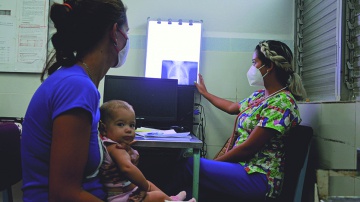
If it weren't for the fact that life is at stake, we could speak of the shortage of specialists as a transitory phenomenon, derived from almost three atypical years, in which COVID-19 took us to the extreme. It is no less true; however, the issue has deeper roots and has been cyclical in Ciego de Ávila province in recent years.
At some point along the way, the logic has been reversed: there are fewer who are trained as specialists in Secondary Health Care and more who, for various reasons, leave the sector temporarily or permanently. In those branches considered basic (Internal Medicine, Pediatrics, Obstetrics and Gynecology, and Intensive and Emergency Medicine), since almost 80 percent of medical assistance falls on them, the problem is doubly complex.
They know it at the University of Medical Sciences, where the methodologist of the Postgraduate Directorate, Omarys Loyola Cabrera, takes the temporary and definitive withdrawals from the residency in pencil, which at the end of 2021 totaled 146.
With this data, the concerns that today keep medical assistance in suspense are rounded off, which reach their climax when we talk about the material limitations and the subjectivities that surround the guild, indissoluble parts of that neuralgic center through which the sector passes today of health in the territory. Change for the better is an urgency that must catalyze all processes.
From the branches to the trunk
For Dr. Liliana Duménigo, Obstetrics and Gynecology was the specialty she would never study, but on the first day of her rotation for this service as a student, Dr. Buchillón spoke to her “so nicely and so well” that she changed her mind. He fell in love. Years have passed since then and, if all goes well, in December he will go from resident to specialist and will be able to hang another degree on the wall.
The anecdote is not fortuitous; brings it up to point out that demotivation pierces and increases, because overload prevents them, many times, from encouraging the vocation in the youngest.
“Gynecology and obstetrics is being reorganized for the better with a new head of service at the Doctor Antonio Luaces Iraola Provincial General Teaching Hospital, however, they have been hard years and a lot of effort. Given the burden of care, teaching is relegated. The guys who rotate around the room and see the pressure we work with don't want to come back”.
To this should be added the delays in the study plans, which have also made a dent in Gynecology and Obstetrics, a branch in which surgical interventions have an important weight. Liliana already has to her credit the 10 hysterectomies established for the third year, although it is not the norm for many of her colleagues and progress is made at a slower pace.
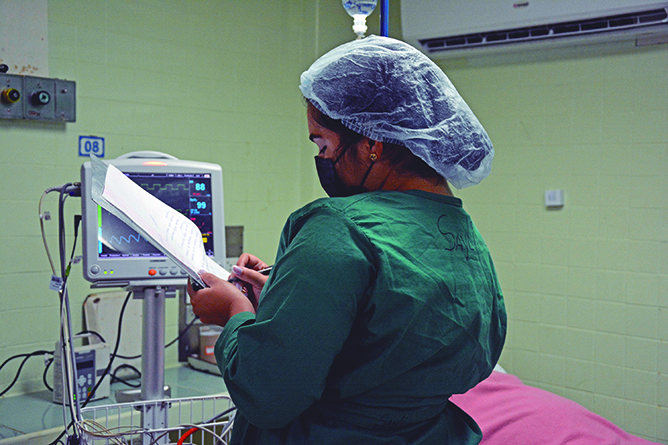
In this context, medical shifts are scheduled to the limit, every 72 hours, which ends up being on the fourth day, since complying with protocols implies, for example, three professionals in the center to decide whether or not to perform a cesarean section.
The visit passes, the meticulous follow-up of pregnant women, the external consultations, the Delivery and Cesarean section, and the gynecological cases, the latter circumscribed, now, to medical emergencies, are invariable. It's not little.
According to a report presented by the Postgraduate Group to the board of directors of the Luaces Iraola, dated June 2022, there are 29 residents who are studying specialties linked to the Maternal and Child Program (PAMI), vital to guarantee the quality of care in a province that, in 2021, crowned the negative record of the highest infant mortality rate in the country.
From the office of Dr. Serafín Noa Cordero, teaching deputy director at this institution, to the Provincial Health Directorate, they know that this number does not meet the needs, especially if we take into account the high percentage of abandonment of the residency regime. This is reflected in the report: of a total of 39 casualties, 15 between temporary and permanent, correspond to the PAMI branches, at the end of June.
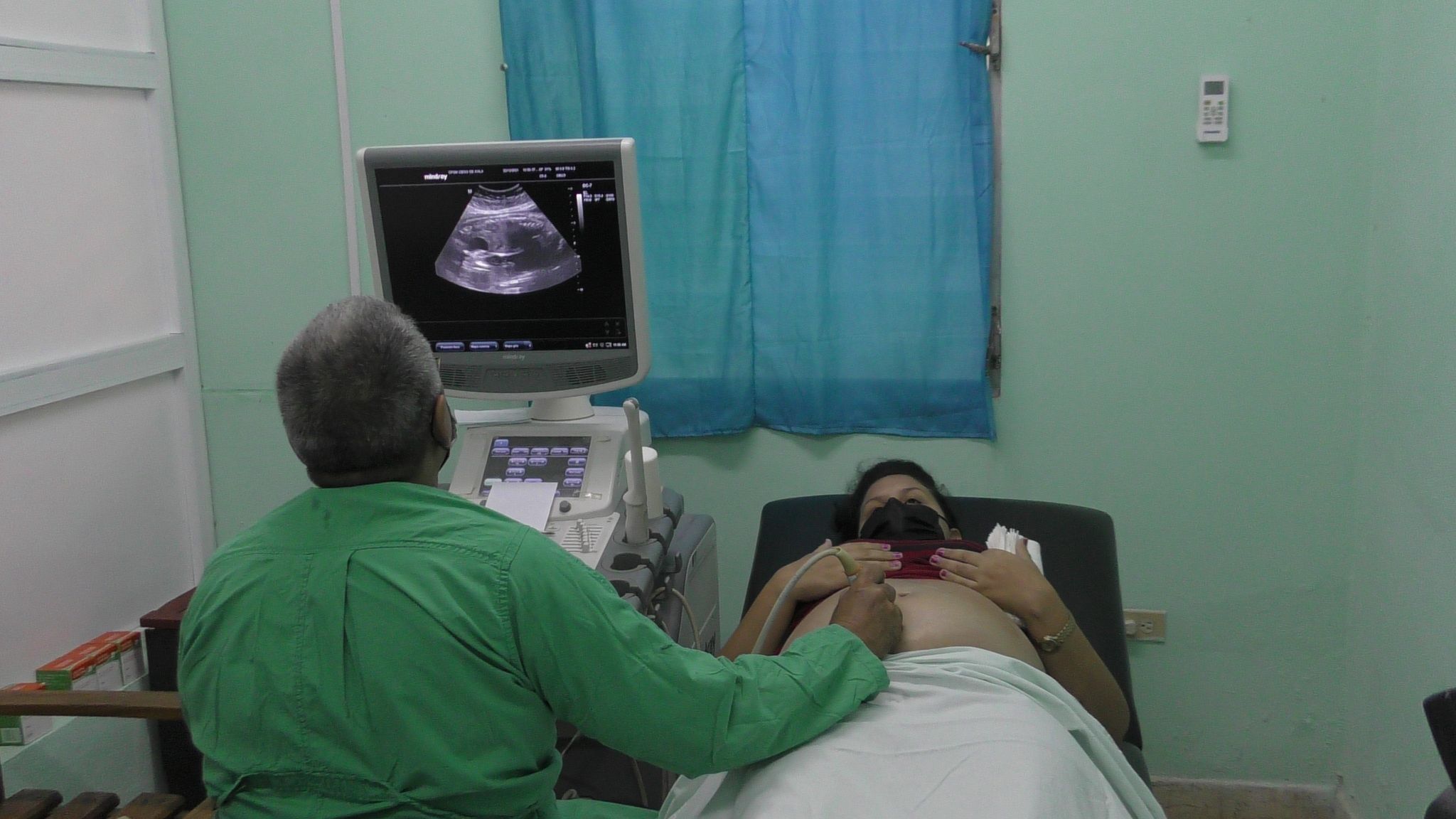
Nor are some causes that Noa Cordero himself exposes minor: "At times, certain administrative or training decisions have had counterproductive effects and have influenced desertions." It is added to this is the aging of the faculty and the overload derived from assuming teaching and care tasks.
It seems that the road is beginning to clear, when the academic vice-rector of the University of Medical Sciences, Mirta Elena Rodríguez Rojas, refers to a certain recovery of the income indicators in the basic branches, thanks to work carried out since the early years with the offer of assistantships, even when one hundred percent of the places are not filled.
“Exceptionally, due to the epidemiological situation, a different modality of vertical boarding school was also approved. The students attend the rotating internship and, in turn, are granted their specialty with a plan of activities that, from said internship, as appropriate to each rotation, they carry out".
Each of these measures seeks to achieve what until now has not happened naturally: to comfortably cover healthcare needs. But this effort has curves to skirt and slopes to climb.
Empty medical consultations?
Dr. Nilka Pita Alemán, provincial director of Health, is categorical when she says that the shortage of doctors has not forced the closure of any consultation, although the deadlines for community projection have been extended and the rotation of medical guards has been tightened.
“Community outreach is guaranteed based on the number of professionals available. If there are not enough to leave in the hospitals and move, in turn, to the different municipalities, we do not do it. So, the patient must come to the Specialty polyclinics established in both institutions, although the ideal is to bring the service closer. On holidays or at the end of the year this situation is more difficult”.
However, the Guard Corps continues to be a hot zone in the two provincial hospitals, either because of the number of emergencies and medical emergencies, or because of the number of patients who, at the slightest symptom or problem, bypass the Primary Health Care structures. The issue is not new.
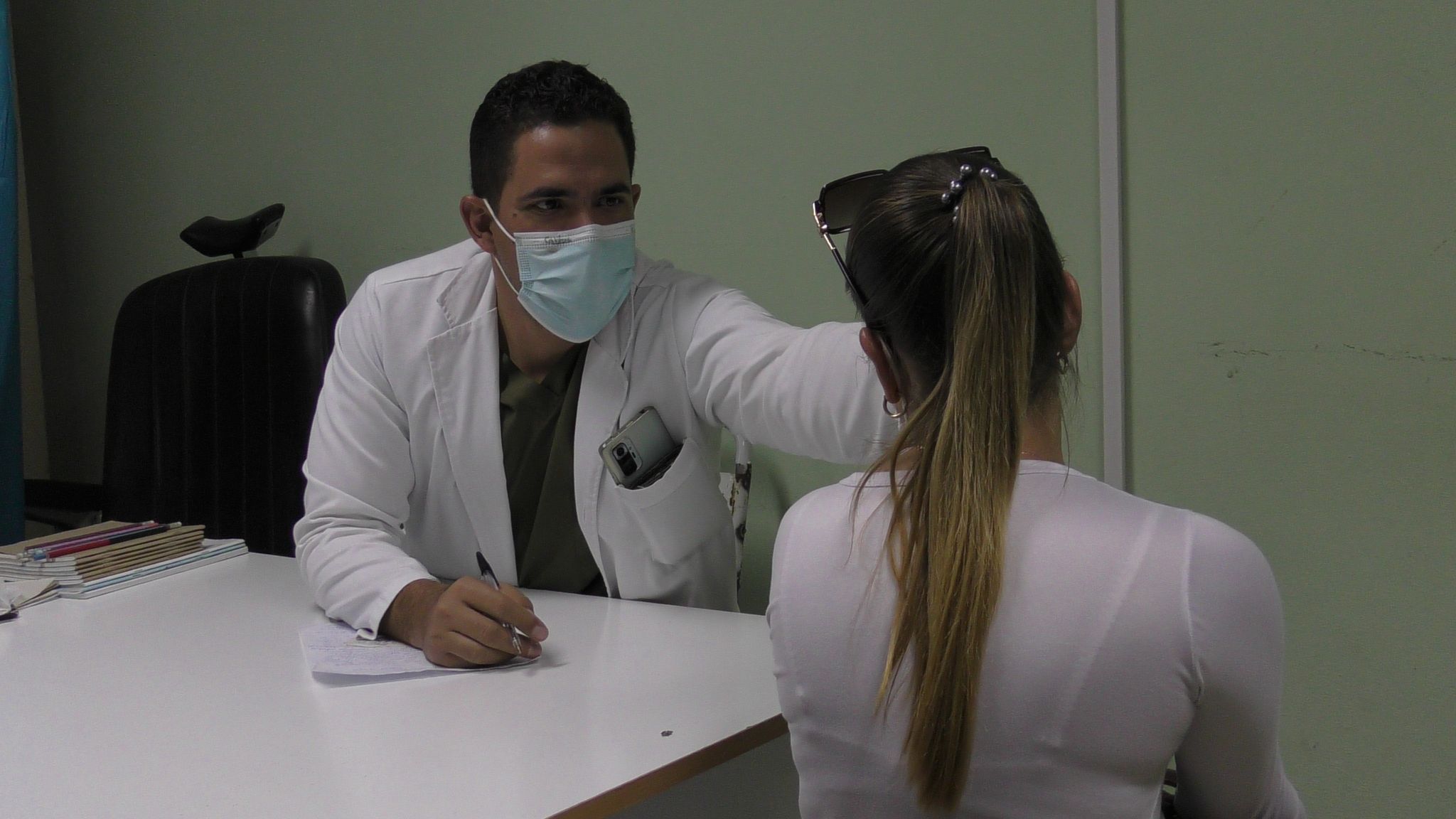
What has been more fateful is the completion of the Medicine consultations or the Observation Room, with the corresponding Internal Medicine professional. "A lot of morbidity and few doctors", goes the explanation of Dr. Livania Lozano Lezcano, head of the Emergency Service of the Ciego de Ávila hospital.
The head of the Intensive Care Service, Taimí Hernández Peláez, also weighs the negative effects of having few active human resources.
“We were supposed to graduate six residents at the end of 2022, but it will only be four. We have two left in training and this year none entered. This is a difficult specialty, an intensivist is not trained in a day”.
The matter even has its plus here, if we take into account that within the projections of the Ministry of Public Health (MINSAP), according to statements by Alberto Moronta Enrique, director of that care center, it is increasing the number of beds in Intensive Care twice as much and almost triple in Intermediate.
Nevertheless, if more specialists have not been trained, it has not been for lack of projection or because the demands have not followed an objective course from the base. In fact, the first version of the vacancy plan for the next school year was carried out in a large work table, which brought together all the factors.
The elements to take into account were several: "anemic" specialties (fewer specialists), teaching scenarios, the faculty, collaboration plans, sick leave and retirement. Initial numbers show around 176 positions, with a higher number of capacities for those with fewer professionals available.
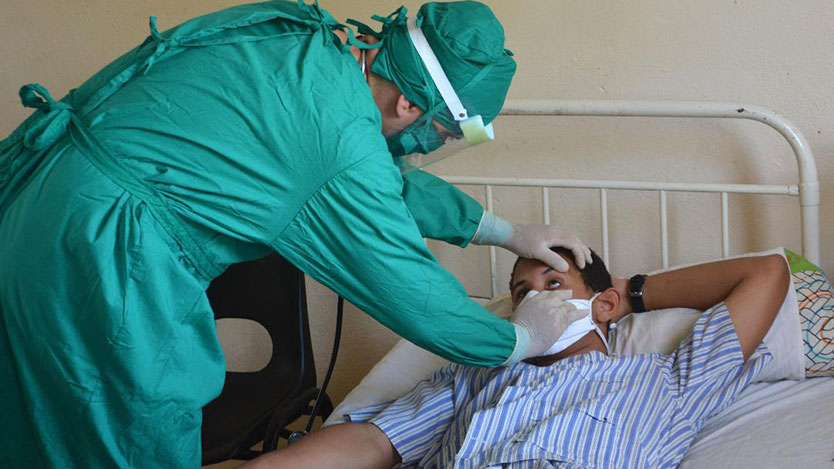
Other alternatives that, in the long term, could leave medical assistance in a better position have begun with the promotion of vertical internships and with the authorization, exceptionally in the last two years, of direct access.
In the same line of analysis, the provincial director of Health adds that "despite the fact that the largest number of places should be granted to specialists in Comprehensive General Medicine, sometimes it is difficult to get them out of the offices and bring them to the hospital." Accordingly, they began a differentiated work in each municipality, with prior authorization from the MINSAP.
In this way, they have proposed to those who are certified to practice Pediatrics, Internal Medicine and Gynecology and Obstetrics to complete their training based on a readjustment of the teaching program. Without ignoring skills and knowledge, the period they have been in these functions would be valued in due measure and we would have more specialists in less time.
Other specialties, without being basic, follow the same critical route, which forks between the exodus and the lack of motivation of the boys to take them, above all, due to the extra effort they imply. Those of the surgical branch could well head the list.
Open surgery
They say that in the Surgery room of the Antonio Luaces Iraola a chair is not moved or the light is turned on without the head of the service, Dr. Alberto Bermúdez Balado, knowing it. Perhaps it is that dedication and expertise, accumulated in 32 years of work, that have kept him standing with his team, despite any setback.
Surgery has been, without a doubt, one of the branches hit by the impasse caused by COVID-19 and by the shortages, increased in recent times by the financial limitations of the country and the impacts derived from the economic, commercial and financial blockade of United States against Cuba, which only in the first seven months of 2021, according to Cuba's report to the United Nations General Assembly, caused losses in the sector in the order of 113 million 498 300.00 dollars, limiting access, above all, medicines, supplies and medical equipment.
The consequences of almost three years with the rooms for elective interventions closed not only result in a long list of patients waiting for an operation, but also in ups and downs to complete teaching cycles, in an increase in emergency cases and in a lower resolution in the queries. However, just as worrying as this is the increasingly smaller number of students who are interested in the specialty, which has penetrated deep and already threatens the relief.
“General Surgery is selective and those who do not have aptitudes have opted for it. In other stages we have had from 14 to 18 students in training, today there are only four”, states the head of the Service and that is where the end of the skein begins.
The other extreme can be delimited with two elements: out of four assistant students, three no longer want to be surgeons, and the study period has been extended, even up to six years, because, as only emergencies are operated on, residents cannot take on these cases and develop the required practical skills in a timely manner.
The analogy between bullets in a war, which cannot be wasted, just like resources in the operating room, is the height of complexity.
For this reason, Bermúdez Balado recognizes that motivation is a loose link: “If in six months of specialty, the resident has only been able to suture in the Guard Corps, he becomes disenchanted, he already did that in the fourth year of the degree. No surgeon trains by looking”.
Aware at all levels that he is right, the alternatives have come from the academy to successfully overcome the obstacles of an atypical course. Mirta Elena Rodríguez Rojas, academic vice rector of the University of Medical Sciences, specifies, first, that no student has graduated without fulfilling what is contemplated in the curriculum of his specialty.
To achieve this, they put into practice methodological strategies that guaranteed the gradual acquisition of knowledge, the faculty was prepared to assume activities here that should have been carried out in other provinces, and the leveling was controlled to determine with certainty who could take state and promotion exams.
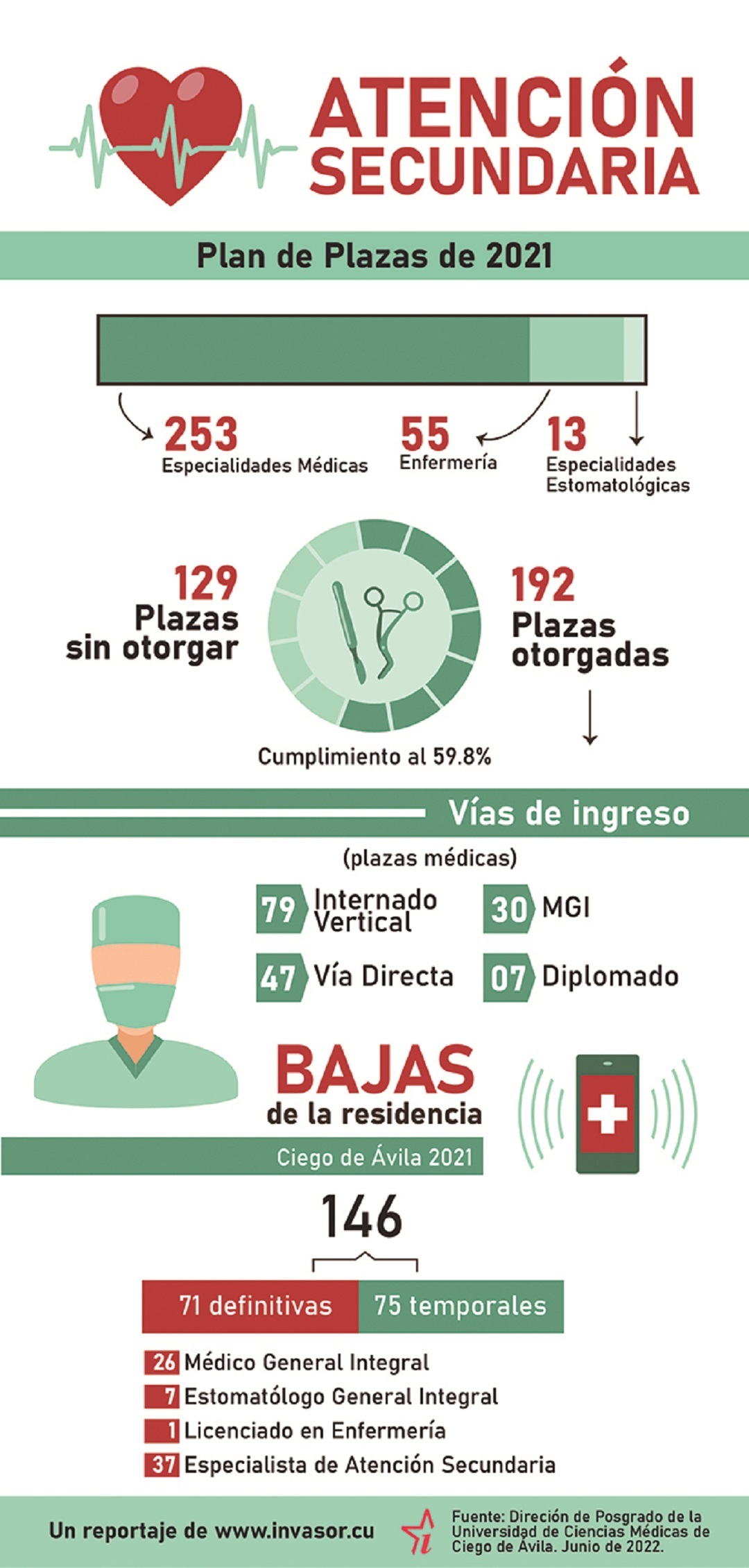
Hospital inside this resulted in a kind of reorganization that, in the case of General Surgery, had as its main axis the Academic Committee of the specialty.
“With the increase in emergencies, we managed to intervene up to four patients per day. We evaluated the statistics and verified that we performed almost a surgical shift only with these cases. We created support for the guard with residents who, due to planning, enter the room daily and, then, the guard enters after 4:00 in the afternoon”. It cannot be said that this is a magical solution; however, it has relieved the debt for the exams in December.
That will be the deadline for Rosabel Fiallo Gort, a resident of General Surgery, who has met the requirements and will be able to turn the page.
His words confirm what we already know: “The workload always falls on us, who are trained under the principle of 'learning by doing'. After a shift, I have gone straight to the room because they are cases that I have followed up on and because of the need to take advantage of the time to learn. The vocation is essential”.
In theory, all the mechanisms are arranged to comfortably balance vocation, needs and teaching, but in practice, there are many professionals who today remain in their posts doing double duty. It will be at that point of confluence where we will find the happy examples to tell about the day-to-day life of medical care.
